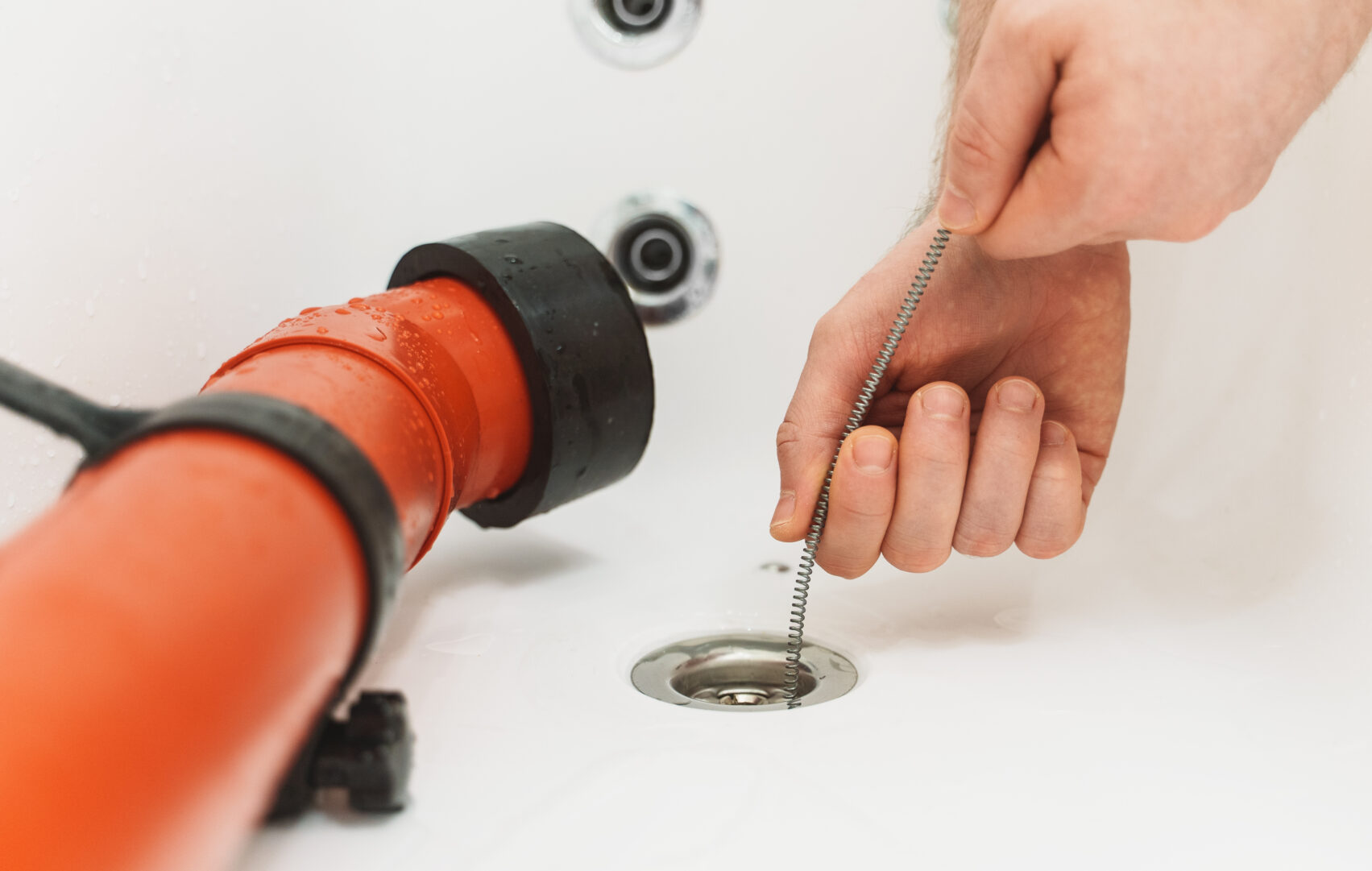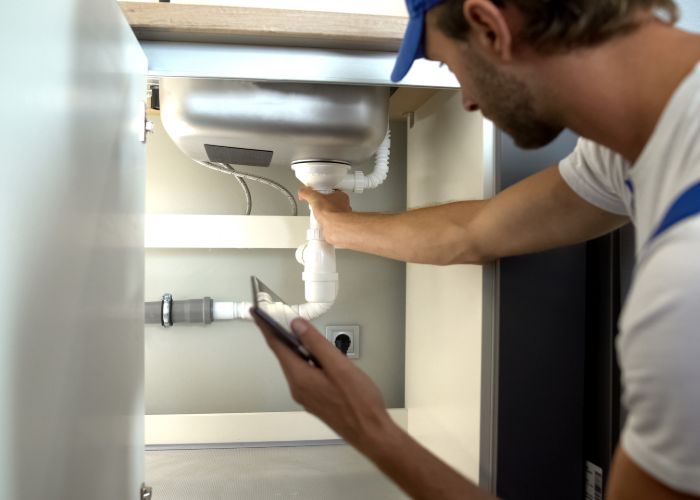Unpleasant odors wafting from plumbing drains can quickly sour the atmosphere of any home, turning kitchens and bathrooms from refreshing spaces into sources of discomfort. These smells are not only a nuisance but also signs of underlying plumbing issues that need attention. Fortunately, there are effective solutions that can restore freshness and functionality to your home’s drainage system. Understanding the causes, knowing how to address them, and preventing future occurrences are all crucial in dealing with smelly plumbing drains.
Understanding Why Drains Smell
 The first step in solving smelly drain problems is to understand what’s causing them. In most cases, odors are the result of organic material, such as food particles, grease, hair, or soap scum, becoming trapped in the drainpipes. Over time, bacteria feed on this debris, releasing foul gases. In some situations, the issue might be more complex, like a dried-out P-trap, venting problems, or even sewer line backups. Recognizing the source of the smell is essential to applying the right solution.
The first step in solving smelly drain problems is to understand what’s causing them. In most cases, odors are the result of organic material, such as food particles, grease, hair, or soap scum, becoming trapped in the drainpipes. Over time, bacteria feed on this debris, releasing foul gases. In some situations, the issue might be more complex, like a dried-out P-trap, venting problems, or even sewer line backups. Recognizing the source of the smell is essential to applying the right solution.
Kitchen Drain Odors and Food Residue
In kitchens, the buildup of food particles and grease is the most common culprit. Cooking oils and fats may go down the drain in liquid form, but they quickly cool and solidify in the pipes. This creates a sticky residue that traps other debris, resulting in decay and an unmistakable rotten smell. Over time, this environment becomes a breeding ground for odor-causing bacteria.
Using hot water alone may not be sufficient to clear the buildup, especially if grease has hardened along the pipe walls. A more thorough cleaning, sometimes with natural enzymatic drain cleaners or a vinegar and baking soda solution, may be needed to dissolve and dislodge the organic matter effectively. Avoid pouring boiling water if you have PVC pipes, as extreme heat could cause damage.
Bathroom Drain Odors and Hair Accumulation
In bathrooms, the smell often comes from hair, soap scum, and toothpaste that have combined into a slimy mass within the drain. Shower and bathtub drains, in particular, are notorious for these issues. As the gunk collects, it supports microbial activity that releases an earthy, sulfur-like odor. Unpleasant smells from sink drains can also stem from cosmetic or hygiene products that settle in the plumbing and degrade over time.
Regularly removing hair from drain covers and flushing with warm water helps minimize buildup. Some people use a bent wire hanger or plastic drain snake to pull hair out of the drain. While not a pleasant task, it can dramatically reduce odors and prevent clogs.
P-Trap Problems and Dry Drains
The P-trap is a curved section of pipe designed to hold water and prevent sewer gases from coming back into the home. If this trap dries out, either due to infrequent use or evaporation, the barrier disappears, and foul air from the sewer system may seep into the house.
This is particularly common in guest bathrooms or basement utility sinks that are rarely used. A simple fix is to run water into the drain regularly to refill the P-trap. Adding a small amount of mineral oil after the water can also slow evaporation. For drains that are never used, covering them or sealing them off entirely might be more effective.
Blocked or Improper Venting Systems
 Every plumbing system is equipped with vents that allow sewer gases to escape safely through the roof rather than re-entering the living space. If these vents become blocked by debris, bird nests, or snow, or if they are improperly installed, the gases can build pressure and force their way back into the home through the drains.
Every plumbing system is equipped with vents that allow sewer gases to escape safely through the roof rather than re-entering the living space. If these vents become blocked by debris, bird nests, or snow, or if they are improperly installed, the gases can build pressure and force their way back into the home through the drains.
In such cases, resolving the issue may require climbing onto the roof to check the vent openings or hiring a plumber with specialized inspection tools. Ensuring proper airflow in the vent system is essential to keeping the pressure balanced and the smells out.
Sewer Line and Septic Tank Issues
When the smell from a drain is especially strong and seems to come from multiple fixtures, the problem could lie in the main sewer line. Tree roots, broken pipes, or blockages in the line can cause sewage to back up, sometimes even resulting in waste surfacing in the home. Similarly, if your home is on a septic system, a full or malfunctioning tank can produce unpleasant odors both inside and outside the home.
These issues usually require professional attention. Sewer cameras and pressure testing can identify the location and nature of the blockage. If a septic tank is the cause, it may need pumping or repair. Addressing these serious concerns promptly is vital for health and safety.
Mold and Mildew Growth Around Drains
Sometimes the smell might not be coming from within the drainpipe at all but from the surrounding areas. Leaks in the plumbing under a sink or around a shower drain can promote mold and mildew growth. These fungi produce musty odors that are easily mistaken for drain issues.
Checking for moisture around plumbing connections, warped cabinets, or soft flooring can reveal hidden leaks. Fixing these leaks and cleaning the mold with appropriate agents can eliminate lingering smells and prevent structural damage.
Using Natural Remedies Safely
For mild to moderate odors, many homeowners prefer natural cleaning remedies over harsh chemicals. A combination of baking soda and vinegar is a classic method for deodorizing drains. Pouring half a cup of baking soda followed by a cup of vinegar into the drain creates a fizzy reaction that helps dislodge debris and neutralize smells. After letting it sit for about 30 minutes, flushing the drain with hot water clears out the loosened material.
Citrus peels can also help freshen kitchen drains. Grinding them in a garbage disposal (if present) releases natural oils that combat foul smells. However, caution is needed with citrus if you have older plumbing, as the acidity could affect certain materials.
Avoiding Harsh Chemical Use
While chemical drain cleaners may seem like a quick fix, they come with risks. Many of them contain lye or acid, which can damage pipes, especially if used frequently. They can also be hazardous to health if fumes are inhaled or if there is skin contact.
If you do choose to use a chemical product, follow the instructions precisely and ensure good ventilation. Avoid mixing different cleaners, as chemical reactions can occur. If the drain remains smelly or slow after treatment, it’s time to consult a professional.
Routine Drain Maintenance
Keeping your drains odor-free is easier with consistent maintenance. Running hot water down the sink after every use can help push debris through the pipes. Using a drain strainer catches food and hair before it enters the plumbing. Monthly treatments with natural enzymatic cleaners or vinegar solutions help maintain a healthy drain environment.
Avoiding putting grease, coffee grounds, and stringy vegetables into kitchen drains also prevents buildup. In bathrooms, taking a few seconds after showers to remove visible hair from the drain can go a long way in preventing clogs and odor.
When to Call a Plumber
 Some smelly drain problems require expert intervention. If odors persist after cleaning, or if they are accompanied by slow drainage, gurgling sounds, or water backups, it may indicate a more serious issue within the plumbing system. A licensed plumber has the tools and expertise to diagnose the problem and perform thorough cleaning, repair damaged pipes, or clear blockages deep within the system.
Some smelly drain problems require expert intervention. If odors persist after cleaning, or if they are accompanied by slow drainage, gurgling sounds, or water backups, it may indicate a more serious issue within the plumbing system. A licensed plumber has the tools and expertise to diagnose the problem and perform thorough cleaning, repair damaged pipes, or clear blockages deep within the system.
Plumbers may use hydro jetting equipment to clear out years of built-up grime and sludge or conduct camera inspections to identify pipe damage or obstructions. Attempting to fix these issues without the proper tools could cause more harm than good.
Improving Ventilation and Air Quality
In some homes, poor bathroom or kitchen ventilation can trap smells and make them seem worse. Installing or upgrading exhaust fans in moisture-heavy areas can help circulate air and prevent odor buildup. Opening windows or using dehumidifiers can also reduce dampness and eliminate musty air.
Scented candles and air fresheners may mask odors temporarily, but they do not solve the root of the problem. Clean air begins with clean drains and well-functioning plumbing.
